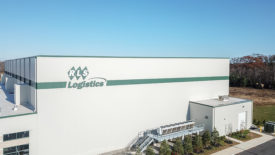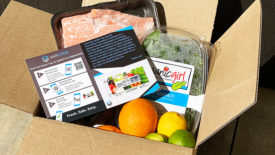Home » sustainability
Articles Tagged with ''sustainability''
KM Packaging Introduces Compostable Cling Film
October 18, 2022
2022 Foodservice Distributor/Logistics Provider of the Year: RLS Logistics
For over 50 years, customers have trusted RLS to manage their frozen and refrigerated supply chains
September 23, 2022
Get our new eMagazine delivered to your inbox every month.
Stay in the know on the latest food and beverage manufacturing markets.
SUBSCRIBE TODAYCopyright ©2024. All Rights Reserved BNP Media.
Design, CMS, Hosting & Web Development :: ePublishing










